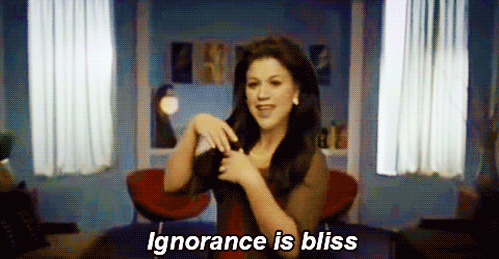So as most of you guys, I did the privilege walk this week. What can I say? This experience was really eye opening. I started off the week by showing my students 2 small clips of the movie crash (one of my all-time faves). I can't even begin to explain how shocked I was when only 3 of my students knew about this movie. *Sighs* #Oldpeopleproblems. Anyway, we had a small discussion after the clips; I am sad to say that SOME students mentioned that they didn't believe racism was still a thing. Are you serious? I mean, are you living under a rock? It is all around us. You are oppressed & you don't even know it. *Woosah*
I suppose the fact that they don't know they're oppressed should allow me to cut them some slack. Not much, but some. After all, they live in a society that implements the abject script method into pretty much everything in the media, politics, etc. It is not their fault that they have been conditioned to think a certain way due to their environment. I just wish that they cared enough to learn why it is important to change their way of thinking, or at least to keep an open-mind. I thought these specific students' minds would change a bit after the privilege walk and I don't know if it was because it was early or not, but the activity didn't seem to phase them #HoustonWeHaveAProblem. At least it's just a few of them.
I wish there was more that I could do in order to educate them, sadly, after 3 weeks, they're leaving the nest. My poor babies, alone in this world to figure shit out on their own. It is CRITICAL that they change their way of thinking 😁, or else this world is going to eat them alive #DebbieDowner.
Oh well. I tried. I really did. I feel like throughout this course, I have done my part to inject bits and pieces of De La Mare's Critical Communication Pedagogy teaching methods in order to put thoughts into my students' heads. Thoughts about changing their way of thinking, keeping an open mind, being accepting of others, and listening to what people have to say. I did the Service-learning project (which allowed them to gain a meaningful experience by helping those in need), we did a lot of audience analysis before the projects began in order to get them better acquainted with each other as well as their organization, they are doing their "final speech" in forms of presenting the outcome of their semester-long service learning activity while simultaneously educating the audience, and finally, we will conduct the debriefing portion with mini-discussions after each presentation and also through their peer evals and individual/group documentation. I think we all have done a lot in order to help our students become less oppressed but there is only so much we can do. The best we can hope for is that this class helps our students out in at least a small portion of their understanding of the world. After all, change is incremental, it won't happen in just one semester. It will take some time. In some, more than others but at least we have the satisfaction in knowing we did our best.
-M.A.




Mari,
ReplyDeleteOr shall I say Maria... Same thing happened to me, yet I was a bit more vigilant. I absolutely love that you connect De La Mare's approach to CCP through Service learning assignments. It is important that students realize the importance of the assignments done in class through class discussions and debriefing. I am glad that you also realize that we as educators CAN only do so much.
However, it is important that we as educators understand the limitations to which we challenge our students. For example, some of my students completely disliked the privilege walk because "it divided" them. Some felt like it was an unfair way of calling out things they "have no control over". All of the students that had an issue with the privilege walk activity were all well ahead of the group. Instead of just asking students to debrief and discuss, I challenge students to unpack their dislikes for the activities. I ask them where their positions were, explain why they did not like it, and what might be a better approach. after all the feelings for the activity have been discussed and unpacked I ask students why did I make them do a privilege walk. What is the point.
I say this because if we as educators do not challenge our students then we are not asking them to think critically. If we allow cop-out answers that only describe dislike for an activity then we're encouraging abject scripts and fragility(multi-cultural). It's not easy, it is not supposed to be. But THOSE WHO CAN, educate.
#THOSEWHOCAN
DeleteMari,
ReplyDeleteI think that ignorance can sometimes be bliss as you talk about, but I also think that ignorance can be problematic (as you also talk about). Ignorance is something that can be very damming, and I think that it is our jobs to point out these inconsistencies within student logic. For example, if a student makes a racist comment, it is our responsibility to go and call this student out.